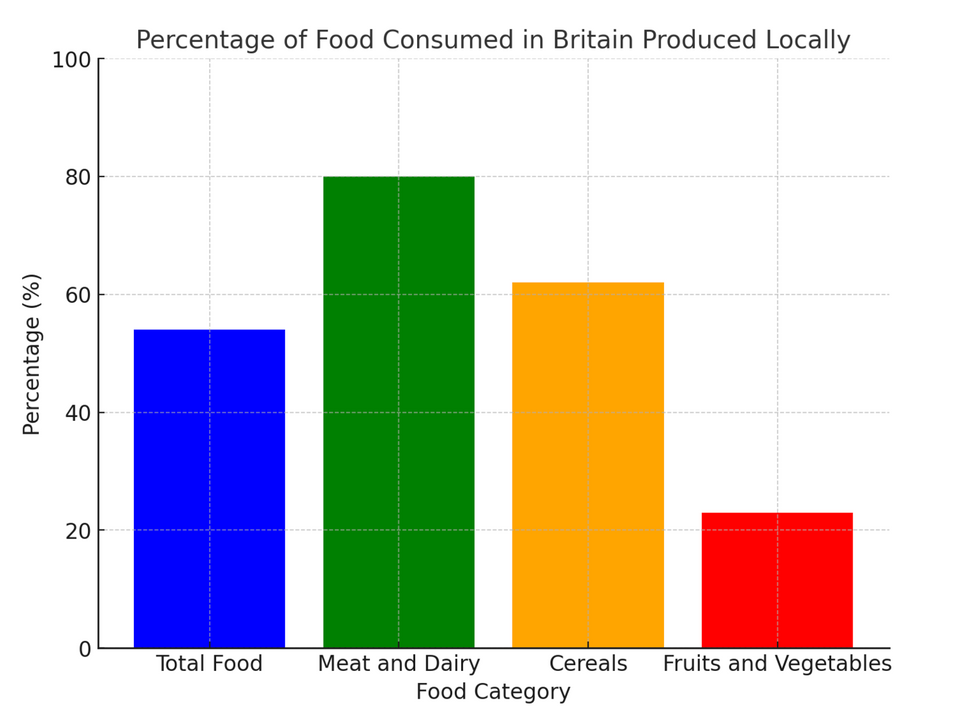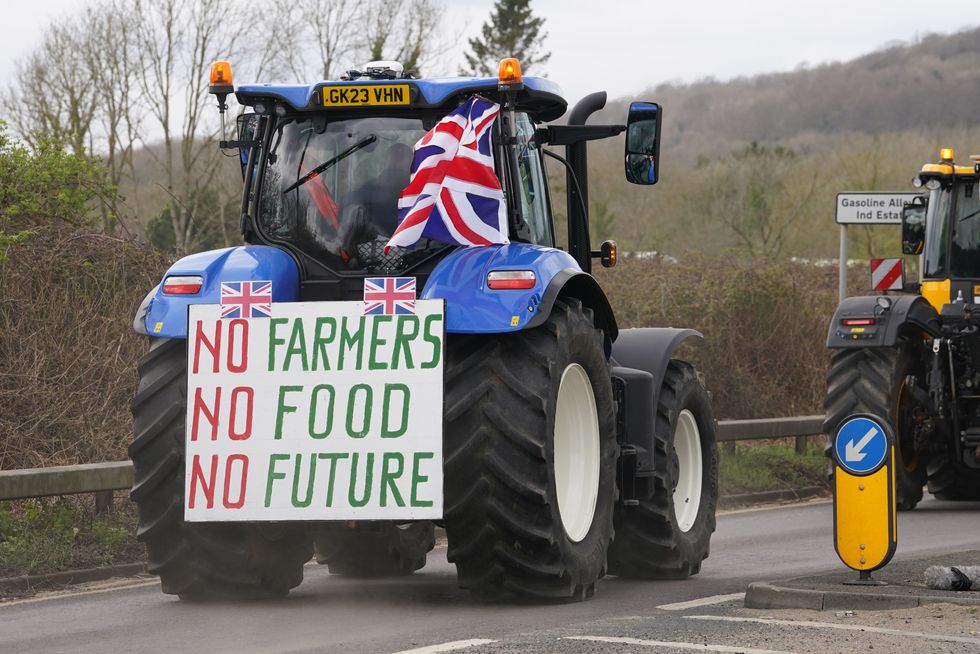Staggering impact loss of UK farms will have on food supply as worst-hit foods revealed should farmers strike
More than 50 per cent of the food Britons consume is produced domestically, including dietary staples, a shocking new graph shows.
It comes as rebel farmers threaten to hold the government to ransom with blockades and food shortages should it not reverse its proposed changes to the inheritance tax.
On Wednesday, tractors gridlocked Parliament in Westminster as hundreds of farmers gathered to protest Rachel Reeves’ budget for the second time.
Around 13,000 farmers descended on central London month to protest the changes to inheritance tax, which would impose a 20 per cent levy on farms valued over £1million starting from April 2026.
Sir Keir Starmer refuses to back down, arguing that slapping 20 per cent death duties on farmers’ assets over £1million was a “fair and balanced” approach to fill the £22billion black hole.
GB News contributor Adam Brooks fears Labour’s intransigence could force farmers to resort to the nuclear option.

How bad could things get?
Data overseen by GB News reveals that it would have a crippling impact on Briton’s domestic food supply should farmers stop selling to supermarkets.
Around 54 per cent of the total food consumed in Britain is produced domestically (see bar chart above), which includes contributions from local farms.
We have analysed data from the Government’s latest Food Security Report to show which dietary staples would become scarce should farmers cut off the food supply.
The percentage varies by category: for example, 80 per cent of meat and dairy and 62 per cent of cereals are sourced locally, but only 23 per cent of fruits and vegetables consumed are grown within the UK.
The precise impact a farmers’ strike would have on supply chains across Britain is hard to predict as supermarkets and smaller outlets differ in their reliance on local farms.
Smaller outlets like butcheries and bakeries often source 60–70 per cent of their products locally, while large supermarkets source about 52 per cent of their stock from British farms, data shows.
Another unknown is whether farmers would be willing to take such radical action, although early signs suggest they would.
Last month, farmer Gareth Wyn Jones told us that he “won’t be selling any lamb or any beef this week… This is not to make people hungry, this is to show what’s to come in the future”.
LATEST MEMBERSHIP DEVELOPMENTS
- Terrifying map for Starmer projects Britain swinging right as Tories and Reform seize over 100 seats
- POLL: Is it time for PM to take farmers seriously and reverse inheritance tax grab?
- REVEALED: Reform could oust Starmer with tactic ‘no one will notice’ as Farage eyes HUGE victory

Clive Bailye, an arable farmer from Staffordshire, has also dangled the threat of cutting off supply lines.
He told Sky News: “Farmers have the ability to do this with tractors and large machinery all over the country, blocking roads, go-slows with tractors, blocking ports and routes to airports… I can see that ending up with a lot of people getting arrested but you can’t arrest everyone.”
To make matters worse for Starmer, an exclusive analysis by GB News revealed that the areas with the most signatures calling for an early election are home to the majority of Britain’s farming industry.

